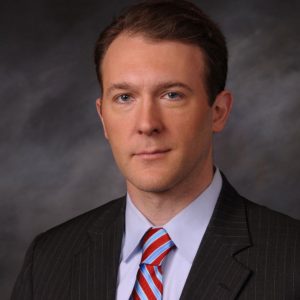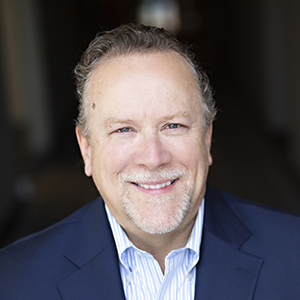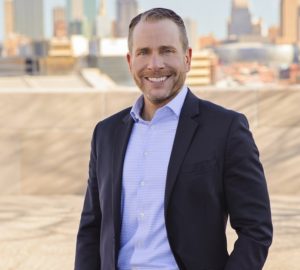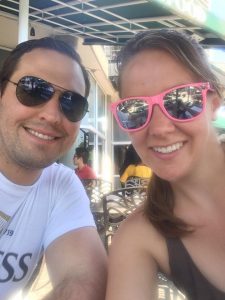
E221- Sunny from FamVestor
Podcasts » Money » Making Money » Real Estate » E221- Sunny from FamVestor
Subscribe to Chain of Wealth
Join 40,515 Monthly Listeners
Subscribe to Chain of Wealth
Join 40,515 Monthly Listeners
Pro Tip: Timestamps below are clickable. Click on the time below in the brackets and the audio will start playing at that part of the show.
Need a financial checkout? Head on over to chainofwealth.com/chat and let’s help you manage your money better! Only $75 for 30 minutes deep dive!
Introduction
Denis O’Brien [0:37]
Welcome to Episode 221 FamVestor. Hey money clan, a warm welcome to the Chain of Wealth podcast. I’m your host, Denis O’Brien,
Katie Welsh [0:48]
and I’m Katie Welsh.
Denis O’Brien [0:49]
So Katie, really fun conversation we had with Sunny and Sunmarie today.
Katie Welsh [0:55]
I know so fun getting to talk to another couple about like, coupley financially things because that’s not something that we get to do all the time.
Denis O’Brien [1:4]
Yeah, and we’re super excited. We’re going to be on their podcast as well. They actually have a YouTube video of us as well. So it’s pretty cool little recording that we did.
Katie Welsh [1:15]
It was definitely fun. And they’re our age as well. They’re 29 and 31. And they’re just really crushing it in the investing in real estate sector. So really nice to be able to pick their brain and they laid out everything like super simple.
Denis O’Brien [1:33]
Yeah, absolutely love it. Alright Kate, well right before we dive into today’s show if you guys haven’t already, we love you followed us on Instagram. It’s @chainofwealth on Instagram. And we’d love to know if you have any real estate investments, let us know on Instagram. Alright Kate you ready to dive on in?
Katie Welsh [1:51]
Yeah,
Denis O’Brien [1:51]
Fantastic. Let’s do it.
The Episode
Denis O’Brien [1:54] Sunny Burns is 29 and works full time as a project engineer for the Department of Defense. He is happily married with two amazing little boys. Sonny is the founder of famvestor.com a blog and podcast where he shares about financial independence and creating strong families. Together with his wife, they own a rental property business worth $1.75 million in assets and over $150,000 annual gross rent. He enjoys the simpler things in life like listening to books, running, biking. Playing Ultimate Frisbee and going on hikes with his family. Welcome.
Sunny Burns [2:17]
Hey, thanks for having us, guys. So joined with my wife Sunmarie today.
Sunmarie Burns [2:21]
Yeah.
Sunny Burns [2:21]
Thanks for having us.
Katie Welsh [2:22]
Yeah. So super excited to talk to you guys. We got to meet a little bit at Fincon a few weeks ago now, but Fincon is kind of like a whirlwind. I’m so glad we got to we’re getting to catch up now. Finally.
Sunny Burns [2:37]
Yeah, I’ve been excited about this.
Sunmarie Burns [2:51]
I was at Fincon too. I just never made an appearance. I hung out by the pool.
Denis O’Brien [2:57]
Low Profile
Sunny Burns [2:46]
and she had two little ones to watch over
Sunmarie Burns [3:0]
I had the kids. Yes, I was on childcare duty.
Sunny Burns [2:51]
Touring the Smithsonian’s
Denis O’Brien [2:53]
It’s actually amazing how many couples do that.
Sunmarie Burns [2:57]
Hey, it’s a it’s a fun way to do it.
Katie Welsh [3:0]
Yeah. So I want to dive in first because the first thing that I noticed as you guys are a young couple, I want to say late 20s early 30s Sunny 29 29. So, enjoy that last, you know, few months you have because let me tell you, when you hit 30 it’s like your body realizes. And then everything like breaks hurts or slows down.
Sunmarie Burns [3:28]
Yes.
Katie Welsh [3:30]
So you guys are like this incredible, like Dynamic Duo where you have started this whole business together. So like, can you tell us I’m sure it’s like a long story, but like a little bit of the backstory behind it, like what started it and some of your struggles that you’ve had?
Sunny Burns [3:51]
Yeah, so I guess what we kind of like to share about is kind of a real estate journey. And so we say $1.75 million in real estate assets. And that sounds monumentous but it’s really just 3 properties we own. We own a four family that we bought into 2015. 2 years later, we bought a three family in 2017. And then this past 4 months ago, August in 2019, we bought another four families. So just 3 properties, 11 units all together that are worth $1.75 million right now and bringing in $150,000 in gross rent. So it’s it sounds like a lot, but it’s not that crazy. When we first started thinking about, I guess our lives together, you know, we got married pretty young when I was 23.
Sunmarie Burns [4:37]
Right, that was back in 2013 2013.
Sunny Burns [4:41]
And we were kind of just discussing and visioning our life together. And for us, we just kept talking about kind of having freedom and the financial freedom to pursue what we wanted to do, which was for Sunmarie, I don’t know if you want explain your story and your upbringing a little bit because that leads into this.
Sunmarie Burns [4:56]
Yeah, so so my background actually growing up was that I was homeschooled, I was homeschooled all through my elementary, middle and high school years and then I went to college, but I really enjoyed the experience. I love the flexibility there. I studied become a teacher and was a teacher. But I found that my heart was really drawn back to homeschooling. And I thought when I have kids one day, I really hope to be able to provide them with a similar education where, you know, they, their education finely tuned to their needs, you know, it’s not in a big classroom setting. So I express that to Sunny. And I said, you know, when we have kids one day, I really hope we can homeschool them. And in order to do that, that means I probably have to be the one who stays home with them, one of us would have to, so how can we make a lifestyle that will be conducive to a single income,
Sunny Burns [5:46]
Right, especially in our high cost of living area? We’re only 15 minutes from New York City in the North Jersey area, which is super high cost of living.
Sunmarie Burns [5:54]
Very hard to do a single income household,
Sunny Burns [5:57]
Right. So you know, we didn’t really have much of our thought was, you know, after listening to some podcast because we didn’t have any friends in real estate was let’s go into house hacking or you know, buy multifamily property. In this case we bought a four family property and live in one unit and then rent out the other units. So we have three renters who pay kind of the mortgage, the tax insurance so that were able to live for free and the one unit. And we bought that actually in 2015. So two years after getting married, you were teaching I was in, I was an engineer, and be bought that when our son was six months old, actually, you were on maternity leave at that point for a whole year,
Sunmarie Burns [6:36]
right. And what we realized was that through house hacking, you cut out the biggest expense of the biggest drain on any couple or individuals income, which is your housing expense, and especially here in the northern New Jersey, New York area, housing expenses out of this world rentals are just sky high. And it’s very hard to afford them. So if we could figure out how to cut that out of our monthly budget, we would be golden.
Sunny Burns [7:3]
Yeah.
Sunmarie Burns [7:3]
And we realized we could do that through house hacking.
Sunny Burns [7:6]
Right.
Katie Welsh [7:7]
So my next question for you because then and I have also talked about maybe buying like a duplex I don’t I feel like finding a complex for four families will be challenging I guess I’m gonna backtrack a little bit. Was it hard is it hard to find these units like you can like all of them you can just buy the whole thing.
Sunny Burns [7:27]
It is hard is definitely hard It took a lot we were searching for about a year before you finally closed on this property. So we were just searching you know going open houses calling up listing agents checking out properties. We put in several offers but you know, it’s such a hot market we were putting like 25,000 over asking and just getting rejected but because someone put in a cashover over ours,
Katie Welsh [7:48]
holy cow,
Sunmarie Burns [7:49]
Right and it is true, four families or quadplexes are harder to find they’re fewer and far between so they don’t come up as often and investors know the value of them. So they they get snapped up very quickly
Sunny Burns [8:4]
Especially in our area. We have such high property taxes, you know, so our four family here it’s 12,000 a year and property taxes which is actually really low for Northern New Jersey, we’re in Garfield, New Jersey, which actually has like, subsidized by taxes by the county. So 12,000 is low, but still, it’s a lot for the rest of the country. So in order to make a cash flowing property, you really have to get multiple units and divide that tax, you know, amongst those properties, right as a single family is going to be about 12,000 in taxes
Sunmarie Burns [8:31]
Exactly the taxes will be the same whether you own a single family or four family.
Sunny Burns [8:35]
You get, you know, close to four times the rent.
Sunmarie Burns [8:37]
Right.
Denis O’Brien [8:38]
That’s absolutely crazy. So chatting a little bit about like the financing of the property. You obviously say that you do have still a mortgage on it. Were you sort of worried that you know, you obviously a buying a unit that has four people or four families at least, so will you sort of worried about covering the rent initially, or did you sort of rationalize it and think well, I’ll be able to find people quite easily to stop paying the rent.
Sunny Burns [9:4]
Yeah, so we live pretty close in New York City, very highly populated area. I mean, we weren’t experienced at all, but we weren’t too concerned about finding renters and you know, like I had our first open house, we did like an open house rental listing we had the first day, we probably have like 20 30 groups come in that first day just for a three hour window. So it’s
Sunmarie Burns [9:37]
and we had a lot of applicants to sift through,
Sunny Burns [9:28]
Right,
Sunmarie Burns [9:28]
This area is highly competitive rental market. So the units get scooped up pretty quickly.
Sunny Burns [9:36]
Right.
Sunmarie Burns [9:37]
And we did know we had run the numbers that you know, the asking going rate for rent, versus what we’re paying for mortgage would definitely work in our favor.
Sunny Burns [9:47]
Right? You know, we this is for three bedroom unit, so a 12 bedroom property. So we can kind of charge premium on the rent like we just rented. So we only had one turnover in the four years we’ve owned this place. And we just rented it out for 1815 a month for the three bedroom unit that we just turned over a year ago, year and a half ago. And we had three days of vacancy, like literally it was they moved out three days, we told them we paint and everything, so everything’s ready to go. And they moved in three days later. So there was three days of vacancy. That’s all we’ve had on this property.
Katie Welsh [10:19]
So do you have? Do you handle all the maintenance and everything yourselves? Or do you hire out like a management company?
Sunny Burns [10:27]
When we first started out, you know, we had the six month old, so it was kind of manageable. You know, both our parents uh Sunmarie’s parents, my parents live nearby. So it’s kind of it was manageable for us to do ourselves. But once we had the second child, we decided, you know, just it wasn’t worth our time anymore. And we decided just contract most of it out. But we do handle the calls. And then we just kind of subcontracted it out to all the people to fix repairs or whatever renovations we’re doing at the time.
Katie Welsh [10:52]
Right.
Sunmarie Burns [10:52]
We haven’t gone with a property manager. We still manage our properties, but outsource some of the work like plumbing and electrical and the more complex things.
Denis O’Brien [11:1]
So in terms of the business, I know you said you’ve got a four family, a four family and a three family is the plan to sort of keep growing it and sort of buy more properties and get more renters. As time goes on, or are you sort of happy the way things are now? What do you sort of thoughts on next maybe 5 10 years?
Sunny Burns [11:20]
Yeah, so we talked about this all the time and kind of go back and forth. But right now, you know, we feel like we don’t want to build a real estate Empire and all the complexities that come with that, we really do just kind of want that financial freedom, not a glamorous lifestyle, just the freedom to raise our family the way we feel is best. And you know, we’ve kind of already achieved that. And with just these three properties alone, you know, they’re bringing $171,000 $150,000 gross rent, and we actually just put on line and Airbnb so that bumped up to $171,000 a year in gross rent, so but net cash flow, what we’re actually getting from the property is really only around like $35,000 after all expenses are considered like mortgage taxes, insurance, utilities and the maintenance throughout the year. So 35,000 net cash flow, but we get to live in one of the units for free so we have no housing expense 35,000 coming in, you know, that’s not exactly enough to live on. But once we pay off the mortgage mortgage account and mortgage expense accounts with $67,000 a year for just these three properties, once we start to chew off mortgage by mortgage, then that’s where we get like that full financial freedom just from these three properties, I’ve calculated that we’d actually be 168% financially independent. So the rent alone after the mortgages are paid off, would cover 168% of our expenses that we occur in a year. So we’d be more than financially independent just from these three properties. So the answer right now in our lives is no we want a simple life and just pay down these properties and live that financial freedom lifestyle from it.
Denis O’Brien [12:51]
So that leads to my next question, what is your strategy with the mortgage? Do you plan to just take it over 30 years or to try pay it off much quicker to save some money on the interest? What are your thoughts about that?
Sunny Burns [13:2]
So each property has a 30 year mortgage on it, you know, it was like a traditional bank finance. It’ll be a pretty low interest rates on them like they’re all between 3% and 4% interest rates. So the plan is to kind of do the snowball debt payoff method. So pay off the smallest mortgage first. And I calculated you know, if we do everything, you know all the excess profits we have in our savings rate, we can pay it off in as little as three years actually. And then from there, we can pay off the next property in another four years. So seven years, we could pay off two properties. And then that would save us about 40,000 and mortgage until we could pay off that final property and then collect that whole 67,000 in mortgage payments. So that would be the plan. The plan is to pay off the smallest mortgages first.
Katie Welsh [13:49]
Okay, so I have a much less technical question than Denis. Denis is the technical person and then I’m, I’m just more nosy. So your renters. Do they know that you own the building? Or do they just think that you’re just like another neighbor?
Sunmarie Burns [14:6]
No, they’re all aware because most of them we met at the open houses. We were running our own open houses, we didn’t have a realtor that we were working with. So we met them there and we’re up front, you know, where the owners, we live on premises or we don’t on some of the properties, and so they all know us very well, they know where the landlords as well as the handyman who comes up and helps them out and the friendly neighbor.
Katie Welsh [14:32]
And also, I’m curious to know what, like, your renters there like a center profile? Are they like young families with like a baby or, you know, a baby on the way or is it like an older couple who’s renting or is it kind of like a mishmash?
Sunmarie Burns [14:48]
It varies and it’s dependent upon the it seems to be dependent upon the rooms per unit, the three bedroom units we have are families, the two bedroom units seem to be couples, as well as the one bedroom units also seem to be couples, some some singles. So it really is hitting all the different demographics, all sorts of different ages and so forth, we have quite a variety of tenants.
Denis O’Brien [15:28]
I know you said that your plan was to stay home with the kids. But say once a grow a little bit older, do you still plan to just remain, you know, at home? Do you want to go back to work? What do you sort of envisioning?
Sunmarie Burns [15:28]
Well, I envision homeschooling them. So that’ll be a long, long track ahead of me. We want to have four kids. So we’re not done yet.
Katie Welsh [15:51]
God bless you.
Sunmarie Burns [15:41]
We have to right now a third on the way. So I see that as my my future for quite some time.
Sunny Burns [15:48]
Next 18 years,
Sunmarie Burns [15:49]
18 years, I guess.
Sunny Burns [15:51]
20 years, really, we haven’t worked on the fourth one yet.
Sunmarie Burns [15:55]
Beyond that, I mean, I do do a lot of the boots on the ground work with the rental properties. So a lot of times well Sunny’s at his job. He’ll get up call and I’ll go over there. I’ll meet with contractors. I’ll meet with the electricians do some of the work myself. So I do view that kind of as my stay at home, job, work from home job,
Sunny Burns [16:20]
You know, definitely very helpful to have someone boots on the ground.
Sunmarie Burns [16:23]
I do really love that kind of work too. I enjoy home renovation and anything that goes along with,
Sunny Burns [16:30]
Right, because Sunmarie used to be an elementary art school teacher, she’s very artistic. She has such a good gift for like interior design. So the way she transforms some of these renovations is amazing.
Sunmarie Burns [16:39]
It’s a lot of fun.
Katie Welsh [16:52]
Yeah.
Sunmarie Burns [16:41]
So when the kids are grown, I don’t know perhaps we would want to increase our portfolio further just for the fun of it.
Sunny Burns [16:48]
You would never return to a nine to five job.
Sunmarie Burns [16:50]
No I don’t think I would.
Sunny Burns [16:52]
I don’t plan to be in a nine to five job for too much longer.
Katie Welsh [16:56]
Yeah, well, especially before the show we You said you had like 700 students a week because you’re the art teacher for the whole school.
Sunmarie Burns [17:5]
Yes. I was actually between two elementary schools in the town I was in and one school had 400 the other had 350 I guess, students and I, I split the week between the two buildings. And it was a lot and I love teaching I loved my students and the faculty there. But it was very demanding and all consuming. So I feel like with all the things we’ve got going on in our life and our sort of ambitions, not sure returning to something like that would be most conducive plan.
Katie Welsh [17:43]
Yeah, oh my goodness, all I can think about it is you during report card time.
Sunny Burns [17:51]
Just to like select A or B or C for 700 students must take you know two hours just something simple like that.
Sunmarie Burns [17:57]
Even with the young like put it Yeah, report cards took me hours and hours.
Katie Welsh [18:2]
Oh and kindergarten and art are my biggest fear. Anyway, totally off topic. I just was thinking about that. So I want Like I said, I’m the nosy one so everything seems like has been so great for you guys you’re young you have this great family going you’re really successful surely there has to have been like some kind of nightmare story with one of these rentals?
Sunny Burns [18:28]
I’m honestly the renting we do a really good job screening their tenants you know, we have a large pool to that applies. We have strict scoring criteria, you know, they have to make two and a half times the monthly rental income as a monthly income coming in as the whole household. We make sure they have a 630 credit score above we do background checks, credit score checks, so every tenant that we’ve placed has definitely been good in terms of acquiring properties and then inheriting tenants there has been a few, you know, shouting matches that happen with those tenants. But you know, we usually try to do some kind of like cash for keys, you know, hey, here’s $1,000 and $500 to move out we will give you full security deposit, and usually they’re happy to leave and then we place our own tenant that’s that’s good there. But overall, I wouldn’t say that was a nightmare and not to say, you know, we didn’t have our sacrifices. You know, in the beginning when we were first married, we moved into my parents house, and it was just a little small three bedroom, but we had a three or four bedroom, four bedroom railroad style. But we had nine adults in this little house and my parents, my parents owned, we were paying them $500 a month rent just for a little bedroom, but they don’t have one bathroom. So like nine adults, one bathroom, and that was how we were saved. We were able to save the downpayment for that first property. We did that for two for two years.
Sunmarie Burns [19:47]
Yeah, a lot of people ask us how did you prepare to make your first purchase especially since house prices here are so high and and honestly, it was just humble beginnings?
Sunny Burns [19:57]
Right. And you were a teacher making a 50 k salary. I was an engineer in the part of the government making a 50 k salary, so hundred k together, which is pretty good. But in those two years, we just really scrimped and saved as much as we could we saved 75,000 in 2 years. By the frugal lifestyle we lived, and that’s how really we sacrificed to get started.
Denis O’Brien [20:18]
It’s really amazing how much money you can save if you really put your mind to it, and you cut back on a lot of stuff. And speaking about that, I was just looking at your bio Sunny, you have here that you flipped 19 cars to pay for your first two years of college. Could you tell us a little bit about that story?
Sunny Burns [20:36]
Yeah, I mean, my dad always told me growing up, hey, if you’re going to go to college, you’re paying for it. I’m not paying a penny of it. So you know, I you know, luckily, my parents were kind of poor. So I got a lot of financial aid and I was smart. So I got merit scholarships, but you know, I still have loans and I still had gaps in funding. So to pay for, you know, the rest you know I did work study, but also, I would look for cars on Craigslist. And I would find, you know, just owners who would want to get rid of their car and want a little more than trade in. And I would, you know, be the first on the scene with cash, buy the car, try to fix it up a little bit, but really just find reliable cars that were being Under marketed or under sold by them and then flip them so over the course of my college career, you know, two four years I flipped 19 cars and you know, averaged about like $1,000 a car or $2,000 per car and that funded that gap in tuition.
Denis O’Brien [21:28]
That’s absolutely crazy because everyone else there like the rest of the world sees cars as expenses.
Sunny Burns [21:34]
Right. Right. It took a lot of searching you know, I watch those Craigslist ads and be the first on the scene because it’s competitive out there too.
Katie Welsh [21:42]
Yeah, you’re much more proactive as a college student than I think either one of us were.
Sunny Burns [21:49]
Yeah, definitely. I’m you know, I wasn’t I wasn’t fooling around to you know, I took 23 credit semesters I was I was pretty serious about it.
Sunmarie Burns [22:10]
I don’t know how he balanced all of it. He just is a power horse there.
Sunny Burns [22:2]
Still commuted from home on my motorcycle high mileage per gallon, cheap gas, cheap insurance for motorcycle too.
Katie Welsh [22:9]
Really.
Sunny Burns [22:10]
Yeah motorcycle You know, when I was looking I was 17 years old I was looking at car insurance because my dad was gonna pay for that either. And he’s it was gonna be $2,000 a year for car insurance in New York City area but a motorcycle was only $300 a year so that’s why I was like okay, I’m getting a motorcycle is cheaper, better gas mileage too and the insurance is actually affordable for a 17 year old so that’s what I ended up doing.
Katie Welsh [22:32]
That is actually terrifying.
Denis O’Brien [22:33]
Actually really interesting. You think it would be more expensive
Sunny Burns [22:36]
Right. But I think it’s just you can’t you know, if you crash a motorcycle into a wall you’re not going to damage damage but you crash your car into something could do a lot more damage. Really only damaging yourself with the motorcycle.
Katie Welsh [22:47]
I guess that is one way to look at it.
Sunmarie Burns [22:50]
When I first met I was like, okay, he seems like he has his head on straight but there’s this motorcycle is he’s some kind of like motorcycle dude. Then I found out no, he’s just really really cheap and practical.
Katie Welsh [23:6]
There’s always that one hang up when you meet them right like I’m not super sure.
Sunmarie Burns [23:12]
Yeah, yeah.
Denis O’Brien [23:14]
We have to keep you ladies guessing a little bit.
Sunmarie Burns [23:42]
Yeah, taking me out to dates to Wendy’s and saying I love that you order off the dollar menu.
Denis O’Brien [23:42]
So Sunny. I know that you said earlier that you don’t want to necessarily work your nine to five forever. Do you have a sort of ideas to what you may want to do when you decide to quit your job?
Sunny Burns [23:42]
Yeah, so I don’t know, I guess I always go back and forth on this. But it’s something I ponder on a lot. And it’s just, you know, I feel like this idea of financial independence has really kind of taken hold of us, and just the freedom it really provides. So I feel like what I want to do is become a speaker and speak to you know, younger people, maybe a college age or even like high school and just kind of talk about personal finance because I feel like if you can really learn it young and really start to put it into action now just like compounds and I feel like there’s just so much transformation you can have or like help you can provide to someone who especially is just starting out, maybe have never heard of things like this or never even thought about their finances in a practical sense and just kind of share with them things like what we’re talking about today, and different things that they can do to really start off their life in a positive, great way.
Denis O’Brien [24:34]
I love it. Money clan we’re just gonna take a quick break, and then we’ll dive right back into the value link round.
Sponsor
Stamps.com brings all the services of the U.S. Postal Service right to your computer. Whether you’re a small office sending invoices, an online seller shipping out products, or even a warehouse sending thousands of packages a day, Stamps.com can handle it all with ease.
Just go to Stamps.com, click on the Microphone at the TOP of the homepage and type in CHAINOFWEALTH
Value Link Round
Katie Welsh [26:1]
Okay, so what does your retirement plan look like for right now? Are you going to go full in on all your rentals? Or do you diversify in their stock market at all? What are you guys doing there?
Sunny Burns [26:14]
Yeah, we’ve been maxing out our retirement accounts for while she can’t do 401k but I max out my 401k my Thrift Savings Plan in the government, and then but we max out her Roth IRA and my Roth IRA. So we do have that going to hedge our bets, I guess, but really, we want to rely solely on the rental income for retirement. And just don’t really touch the 401k retirement brokerage accounts.
Denis O’Brien [26:39]
I love it. And do you have any books or podcasts that you’re currently into?
Sunny Burns [26:44]
Um just really I’ve been kind of consumed just starting my own podcast and running that so haven’t really been doing so many podcasts recently.
Denis O’Brien [26:55]
Why don’t we Why don’t we dive out on that and give us a little bit of a pitch there.
Katie Welsh [26:59]
You’ve got a name drop your own podcast.
Sunny Burns [27:2]
Yeah. So we started my wife and I you know, where the hosts of the FamVestor podcast was like family investor. And we talk a lot about personal finance but also about just parenting and you know, raising wholesome families that are you know, intentional, intentional about living our lives on purpose and just creating a meaningful life that’s designed around, you know, upbringing of family, and I don’t know Sunmarie you want to chime in a little bit.
Sunmarie Burns [29:0]
Yeah, finding balance between family finance and freedom, freedom to live the life you want. Financial Freedom, travel freedom. And we explore a lot of different topics relating to anything family related, as well as finance. We’ve had some interesting guests on, ranging from real estate investing to a
Sunny Burns [27:28]
Guy who just ran 100 miles and has three kids.
Sunmarie Burns [27:50]
Right and health care professionals and someone who has traveled the world house hack to house hack for an entire year with.
Sunny Burns [27:58]
Not house hacking, house sitting
Sunmarie Burns [27:59]
House sitting for entire year.
Sunny Burns [28:1]
Yes,
Sunmarie Burns [28:2]
Interesting topics. We have quite the gamut.
Katie Welsh [28:6]
That is quite interesting. And do you guys have a favorite quote you’re trying to live by this one gets everybody.
Sunmarie Burns [28:19]
The Marianne Williamson one is
Katie Welsh [28:21]
You can google one real quick.
Sunny Burns [28:23]
Google one real quick. I don’t know my dad always told me effort counts more than genius. So you know, just that, you know, just put in the hard work, put in the effort and kind of give it your all and I feel like that’s kind of what we’re trying to live our lives by, you know, not just sitting down watching TV and zoning out with our life but really trying to build something great and intentional design the way we truly feel happiness and fulfillment. And that’s what we’ve been trying to do. So effort counts for more than genius.
Katie Welsh [28:52]
I love it.
Denis O’Brien [28:52]
Awesome, Sunny and Sunmarie, we’ve loved hanging out today, do you have any other last parting piece of advice for our listeners and then we’ll say goodbye.
Sunny Burns [29:0]
Just to you know, live below your means I feel like we have a lot of fun with our lifestyle you know, we travel a lot we go to eat at great places, but we try to do it and as frugal away as possible and we now you know, it’s such a good habit that we have that we actually have fun doing it. And we love being frugal like hey, this is how much we saved and we got to do this extravagant thing and it was awesome and so just live below your means. It doesn’t have to be a you know, a suffering thing. It’s just something to do and then I think the rewords you get from it really are so monumental in the long run.
Denis O’Brien [29:33]
Money clan live below your means. We’d love you would follow Sunny and Sunmarie, check out their website. It’s a famvestor.com and also take a listen to their podcast. There’s some really cool episodes on there.
Enjoying Our Podcast?
We have over 150 episodes to listen to! Join over 2,167 daily listeners that pursue financial freedom.
By entering your email, you agree to our Terms of Service and Privacy Policy.
Other Investing / Making Money / Real Estate Podcasts


E218- Gary Boomershine
Gary Boomershine founded RealEstateInvestor.com in 2005 out of the need to scale and grow his own real estate investing and home buying business. With a

E216- Kirk from Money Tree Investing
Denis O’Brien [0:37] Welcome to Episode 216, Money Tree Investing. Hey money clan, a warm welcome to the Chain of Wealth podcast. I’m your host,

E214 – Bob Fraser from Aspen
Bob Fraser is on a mission to help investors take advantage of one of the most effective and overlooked avenues of real estate investing: residential

E213 – The Importance of Your Savings Rate
Denis O’Brien [0:37]Welcome to Episode 213. The importance of your savings rates. Hey money clan, a very warm welcome to the Chain of Wealth podcast.

E210- Clint Haynes from NextGen Wealth
Clint Haynes is a Certified Financial Planner® and Founder of NextGen Wealth. He’s been in the financial services industry since 2001 working for both large
About the Podcast

Chain of Wealth
The Chain of Wealth podcast is a biweekly podcast boasting over 500,000 downloads. We interview inspirational guests about money topics. You can learn more about us here.

